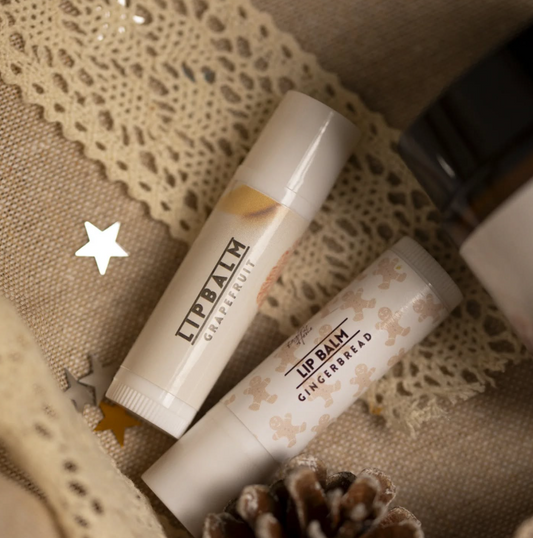Essential Oils in Skincare: Are They Harmful? (What You Need to Know)
There’s a growing conversation in the skincare community around the use of essential oils, with some people raising concerns about whether they are safe or potentially harmful. If you’ve been following natural skincare trends, you’ve likely noticed certain brands removing essential oils from their formulas, citing worries about allergies, skin irritation, or even long-term side effects.
This shift has prompted many to ask:
- Are essential oils dangerous?
- Should I be concerned about using products with essential oils?
- Are adverse reactions common or rare?
- Why does Kayle at Home proudly continue to formulate products with essential oils?
At Kayle at Home, we believe in complete transparency. While many companies hide behind “natural” labels without fully disclosing what’s in their products or why they use certain ingredients, our goal is to educate you so you can make informed decisions. We’ll explore the benefits, risks, and most importantly, how to safely use essential oils in skincare.
Why This Movement Emerged
In recent years, concerns about essential oils have become more mainstream, especially as natural and clean beauty has grown in popularity. Some of the major points raised by skeptics include:
- Allergic reactions, particularly to highly concentrated oils.
- Skin irritation for those with sensitive skin types or conditions.
- Phototoxicity, especially from certain citrus oils.
- Potential long-term hormone disruption with excessive or improper use.
These worries have prompted some brands to reconsider their formulations, and in some cases, remove essential oils entirely. However, these concerns are often related to misuse rather than the intrinsic properties of the oils themselves.
The Benefits of Essential Oils
Despite the recent controversy, essential oils have a long history of safe and effective use in skincare when used properly. Here are some of the potential benefits:
- Antibacterial and antifungal properties: Oils like tea tree and lavender can help fight off bacteria and fungi, keeping skin clean and healthy.
- Anti-inflammatory: Oils like chamomile and helichrysum can soothe inflammation, which is beneficial for conditions like eczema and acne.
- Rich in antioxidants: Oils like rose and geranium contain high levels of antioxidants, which protect the skin from free radicals and help reduce signs of aging.
Are Essential Oils Bad for Skin? Addressing Concerns
While concerns about essential oils in skincare are valid, they largely stem from misuse or improper formulation. Let’s break down some of the most common concerns and how they can be mitigated.
“Natural doesn’t always mean safe.”
This statement is true, but it misses a key point: dosage and formulation are crucial. Just as too much of a good thing can be harmful, using undiluted essential oils or too high a concentration can lead to irritation or worse.
At Kayle at Home, we ensure that all our products are formulated with appropriate dilution levels. Essential oils are never applied to the skin in their raw form. Instead, they’re carefully blended with carrier oils to ensure that you get all the benefits without the risk of irritation or sensitivity.
“Some essential oils are too strong for sensitive skin.”
Certain essential oils can be too harsh for individuals with sensitive or damaged skin. However, the issue is usually related to concentration. Essential oils are incredibly potent, and even a few drops can be highly effective when properly diluted.
At Kayle at Home, we adhere to industry-recommended dilution guidelines to ensure safety, even for sensitive skin. Each formula is carefully balanced to deliver the benefits of essential oils without causing irritation.
“Essential oils can cause skin irritation or acne.”
This is one of the more common concerns raised by sceptics. While it’s true that some people might experience a reaction to essential oils, this is often the result of improper use or other underlying factors such as:
- Gut microbiome imbalances, which can affect skin health.
- Over-exfoliation, which disrupts the skin’s natural barrier, making it more susceptible to irritation.
- Other ingredients in a formula, which may clog pores and cause breakouts, independent of the essential oils.
We focus on creating products that are non-comedogenic, meaning they won’t clog your pores. By pairing essential oils with soothing, balancing ingredients, our formulations work to improve your skin, not disrupt it.
“Essential oils can disrupt hormones or are dangerous during pregnancy.”
This is a legitimate concern. Some essential oils do contain compounds that may affect the endocrine system or interact with medications. For example, oils like clary sage and rose can stimulate the uterus and are best avoided during pregnancy.
At Kayle at Home, we prioritise your safety. That’s why our baby range does not include essential oils. Instead, we infuse our products with regenerative-grown calendula and marshmallow root, which are gentle and soothing for both mom and baby. Calendula is known for its anti-inflammatory properties, promoting healing and reducing irritation, while marshmallow root is excellent for hydration and soothing sensitive skin. Together, they provide a nurturing experience for both mother and child.
“Some essential oils are phototoxic.”
Yes, certain essential oils, particularly citrus oils, can cause phototoxic reactions when exposed to sunlight. This means they can increase your skin’s sensitivity to UV rays, leading to burns or discoloration.
We address this concern by using phototoxic-free alternatives or furanocoumarin-free versions of citrus oils. For instance, our bergapten-free bergamot ensures you get the fresh, uplifting benefits of citrus without the risk of phototoxicity.
The Real Issue with Essential Oils in Skincare
The recent backlash against essential oils has highlighted a broader issue: lack of education and improper use. Many of the risks associated with essential oils can be minimized or avoided with proper formulation and usage.
Lack of Safety Guidance by Large Corporations
Unfortunately, many large beauty brands don’t provide adequate education on how to use essential oils safely. Without guidance, consumers may misuse products—applying oils directly to the skin without dilution or using them too frequently.
At Kayle at Home, we take education seriously. We provide detailed instructions on how to use our products, including application methods.
How We Use Essential Oils Safely at Kayle at Home
At Kayle at Home, safety is always our top priority. Here’s how we ensure that our products deliver the benefits of essential oils without any of the risks:
- We follow strict dilution guidelines to ensure that essential oils are used safely.
- Our formulations are non-comedogenic, so they won’t clog your pores or cause breakouts.
- We use antioxidants like Vitamin E to stabilise essential oils and prevent them from oxidising, which can cause irritation.
- Our products are packaged in dark glass bottles to protect them from light and preserve the potency and safety of the oils.
- We conduct extensive research and testing to ensure that our formulations are safe for all skin types, including sensitive skin.
Essential Oils—Powerful, but Only When Used Responsibly
There’s no denying that essential oils are powerful tools for skincare. However, like any ingredient, they need to be used responsibly. At Kayle at Home, we’re committed to formulating products that harness the natural benefits of essential oils without compromising your safety.
We believe in the power of nature, but we also believe in the importance of education, transparency, and responsible formulation. When used correctly, essential oils can elevate your skincare routine, helping you achieve glowing, healthy skin.




